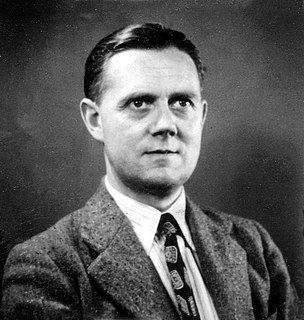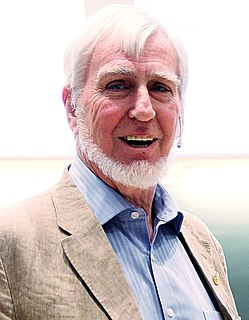A Quote by Paul Bloom
Some scholars argue that although the brain might contain neural subsystems, or modules, specialized for tasks like recognizing faces and understanding language, it also contains a part that constitutes a person, a self: the chief executive of all the subsystems.
Related Quotes
We are made up of an entire parliament of pieces and parts and subsystems. Beyond a collection of local expert systems, we are collections of overlapping, ceaselessly reinvented mechanism, a group of competing factions. The conscious mind fabricates stories to explain the sometimes inexplicable dynamics of the subsystem inside brain. It can be disquieting to consider the extent to which all of our actions are driven by hardwired systems doing what they do best while we overlay stories about choices.
The brain is more than an assemblage of autonomous modules, each crucial for a specific mental function. Every one of these functionally specialized areas must interact with dozens or hundreds of others, their total integration creating something like a vastly complicated orchestra with thousands of instruments, an orchestra that conducts itself, with an ever-changing score and repertoire.
The brain immediately confronts us with its great complexity. The human brain weighs only three to four pounds but contains about 100 billion neurons. Although that extraordinary number is of the same order of magnitude as the number of stars in the Milky Way, it cannot account for the complexity of the brain. The liver probably contains 100 million cells, but 1,000 livers do not add up to a rich inner life.
Not bad in short, though the last one [understanding the language of animals], isn't half as useful as you might expect, since when all's said and done the language of the beasts tends to revolve around: a) the endless hunt for food, b) finding a warm bush to sleep in the evening, and c) the sporadic satisfication of certain glands. (Many would argue that the language of human kind boils down to this too)
The emergence of a unified cognitive moment relies on the coordination of scattered mosaics of functionally specialized brain regions. Here we review the mechanisms of large-scale integration that counterbalance the distributed anatomical and functional organization of brain activity to enable the emergence of coherent behaviour and cognition. Although the mechanisms involved in large-scale integration are still largely unknown, we argue that the most plausible candidate is the formation of dynamic links mediated by synchrony over multiple frequency bands.
Since functional brain imaging first emerged, we have learned that there aren't very many brain regions uniquely responsible for specific tasks; most complex tasks engage many if not all of the brain's major networks. So it is fairly hard to make general psychological inferences just from brain data.
It turns out that this part of the brain is one of the first areas that's attacked by Alzheimer's disease. So we can now use some of the basic understanding of this part of the brain to ask the simple question, 'What is going wrong with these special cells in the hippocampus at the very earliest stages?'
The key question is, no matter how much you absorb of another person, can you have absorbed so much of them that when that primary brain perishes, you can feel that that person did not totally perish from the earth... because they live on in a 'second neural home'?... In the wake of a human being's death, what survives is a set of afterglows, some brighter and some dimmer, in the collective brains of those who were dearest to them... Though the primary brain has been eclipsed, there is, in those who remain... a collective corona that still glows.






































